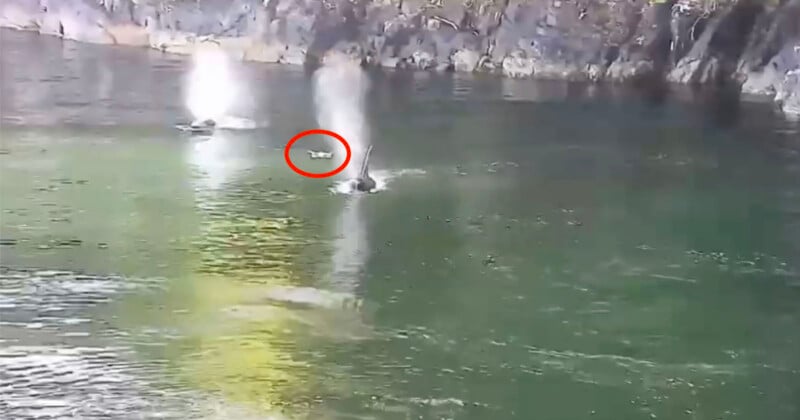Film Crew Fined $22K for Flying Drones Next to Killer Whales

Canada has handed a $22,000 fine to a film crew who illegally flew their drone next to a pod of orcas.
In the first ever case of its kind in Canada, River Road Films pleaded guilty to unlawfully capturing drone footage of killer whales in Vancouver Island engaging in “beach rubbing.”
The footage was shot for a documentary called The Island of the Sea Wolves which is on Netflix. The drone footage apparently did not make it into the final cut but there is underwater footage of the whales’ beach rubbing.
In 2020, River Road applied to the Department of Fisheries and Oceans Canada (DFO) to film the orcas but the application was denied. The company, based in British Colombia, apparently went ahead and filmed anyway.
It is illegal to fly a drone within 1,000 feet of a killer whale under Canada’s Marine Mammals Regulations.
In August 2021, a charity called OrcaLab, which has a remote camera at one of the rubbing beaches, spotted a drone flying very close to the killer whales.
“We witnessed the drone being launched and hovering what seemed about 10 metres [30 feet] over the orcas as they were rubbing during the event,” Suzie Hall, who spotted the drone on the live cam, tells Vancouver is Awesome.
Beach rubbing is a unique behavior of the Northern Resident Killer Whales which live off the coast of British Colombia. They head for shallow waters near the shore, then brush against the smooth pebbles below — an activity that is thought to help scrape off dead skin, strengthen family bonds, and feel like a massage.
Following an investigation by the DFO, River Road Films was fined $18,000 while drone operator Matthew Hood, the person piloting the aircraft, was ordered to pay $4,500.
“We should be adopting a zero-tolerance policy to the disturbance of wildlife, especially when there are very clear marine mammal regulations in place when it comes to filmmaking… ethics have to be the number one priority,” Hall from OrcaLab tells Vancouver is Awesome..
“There are very clear regulations around drone usage, but beach rubbing as a behaviour that we know happens up and down the coast… Currently, you can be standing with your feet touching the water, and not technically be going against any regulations, but you may still be disturbing them when they’re metres away. So I’d like to see that come into consideration for the next round of marine mammal guidelines.”
Image credits: OrcaLab